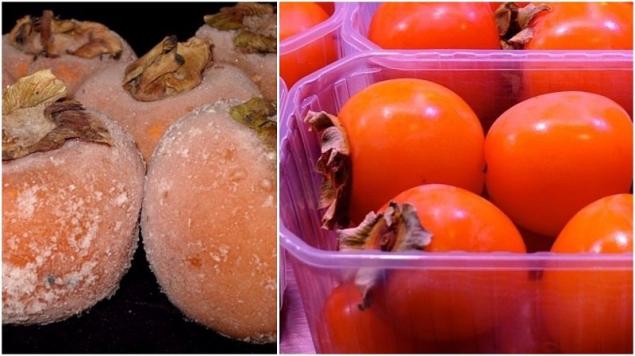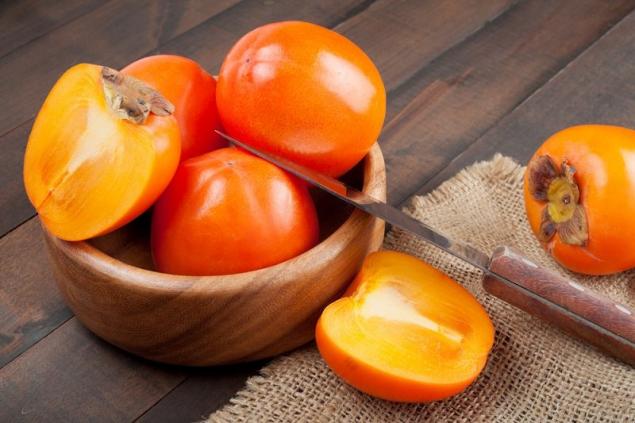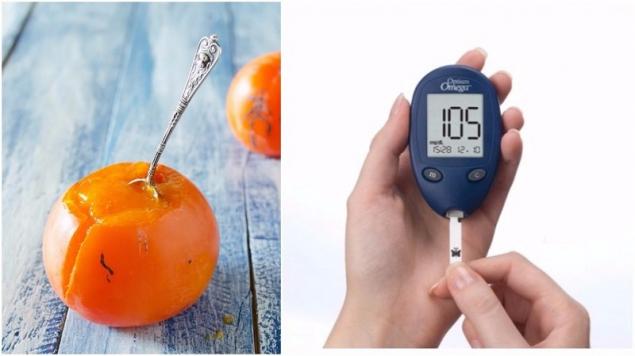181
Why freeze persimmon
In shops and markets already sell persimmon of the new harvest. This delicious oriental fruit is equally loved by children and adults. Ripe, juicy fruits have become a familiar winter delicacy in many countries.
86430
The whole world became acquainted with persimmon in 1855, when the American Admiral Matthew Perry opened to the West Japan, which was more than 200 years in isolation. Perry did not return to the United States empty-handed. He brought persimmon that the whole world knows today. Another name of persimmon - diospiros - is translated from Latin as "food of the gods."
Persimmon is not only delicious, but also good for our health. If you regularly consume persimmon, you can prevent many diseases. However, for all its attractiveness and usefulness, persimmon is not as harmless as it may seem at first glance.
Whether persimmon is useful properties
Contraindications
Tanin editorial board is destroyed when frozen, so frozen persimmon completely gets rid of tartness. If the fresh fruit was too much tanninTheir taste was unpleasant and astringent, after freezing these shortcomings will completely disappear. This, by the way, will improve the taste of persimmon, make it sweeter.

How to properly freeze persimmon
At home, keeping fresh persimmon is very problematic, so people have come up with a lot of options for blanks from this berry. You can store persimmon in three types: fresh, frozen and dried (or dried). Choose any of the proposed methods, and you will be provided with vitamins and other nutrients for the whole year until the next harvest.

Everything is useful in moderation. Fear of possible intestinal obstruction should not make you completely abandon this valuable berry.
People often ask, How much can you eat persimmons? during the day. For a healthy person, 2 fruits are a safe norm. It is only important to observe some caution: avoid eating unripe persimmon, do not eat persimmon on an empty stomach, do not eat the fruits of persimmon with cold water and milk.
86430
The whole world became acquainted with persimmon in 1855, when the American Admiral Matthew Perry opened to the West Japan, which was more than 200 years in isolation. Perry did not return to the United States empty-handed. He brought persimmon that the whole world knows today. Another name of persimmon - diospiros - is translated from Latin as "food of the gods."
Persimmon is not only delicious, but also good for our health. If you regularly consume persimmon, you can prevent many diseases. However, for all its attractiveness and usefulness, persimmon is not as harmless as it may seem at first glance.
Whether persimmon is useful properties
- General strengthening effect on the body
The polyphenols contained in persimmon, as well as catechin, have anti-inflammatory and antibacterial properties. Due to the useful composition of the berry perfectly nourishes the body in the season of flu and colds. And the orange pigment beta-carotene has a positive effect on the organs of the respiratory system, preventing the development of complications, in particular pneumonia and bronchitis.
- In diseases of the cardiovascular system
Persimmon helps maintain the normal functioning of the heart and blood vessels due to the high content of potassium and magnesium. These substances are extremely important, as they participate in the metabolism of heart muscle cells and saturate them with energy. They regulate the contractile function of the myocardium, which makes it possible to call the use of persimmon the natural prevention of arrhythmia and heart failure. - For urolithiasis
Magnesium contained in persimmon reduces the likelihood of kidney stones, helps to remove sodium salts from the body and unload the kidneys. This fruit has diuretic and tonic properties. - Anemia.
The flesh of persimmon perfectly helps with this disease, since the fruit contains a large amount of iron. This is especially important for expectant mothers, whose body often suffers from a lack of this element.
- Against cancer
Persimmon contributes to the delay in the growth of neoplasms. Persimmon fruits contain a high percentage of beta-carotene, which is a very strong antioxidant that can fight free radicals that destroy cellular structures.
Contraindications
- Obesity and diabetes
Persimmon contains a large amount of sugars, so it is not recommended to use people with excess weight, as well as diabetics.
- Children under three
Children under the age of three years it is better not to give persimmon, since they have not yet formed a normal production of gastric juice at this age. Because of this, particles and fibers of the fruit can stick together in a lump and cause abdominal pain. - Allergy
Experts do not advise eating persimmon to people with increased sensitivity to iodine. In such cases, it can cause harm, causing allergic reactions of various manifestations. Iodine allergy is more common in children, but in the case of an adult, it is much harder. - caries
Always after consuming persimmon, you need to brush your teeth or rinse the oral cavity, since there is a great risk of caries from the effects on enamel of organic acids and tannin. - Disturbance of the bowel
To turn out to be from the use of persimmon is worth people who have undergone operations on the intestines and stomach. Excessive consumption of fruit can lead to the formation of a foreign body in the intestines - the bezoar - and, as a result, to intestinal obstruction and urgent surgery. The fact is that persimmon skin contains a lot of tannins. These substances of plant origin have tanninous and astringent properties. In the specific environment of the stomach, tannins are able to form clusters of particles that cannot be digested.
Tanin editorial board is destroyed when frozen, so frozen persimmon completely gets rid of tartness. If the fresh fruit was too much tanninTheir taste was unpleasant and astringent, after freezing these shortcomings will completely disappear. This, by the way, will improve the taste of persimmon, make it sweeter.

How to properly freeze persimmon
- If you want to freeze the whole persimmon, first wash the fruit, then completely dry. Wrap each persimmon with several layers of food film and carefully fold into the freezer chamber.
- You can cut the fruit in pieces to later use as a blank for pies, cereals and desserts. Cover the bottom of the container with food film, spread out the sliced slices. Cover on top with a lid or several layers of film.
- It is very convenient to freeze persimmon in the form of puree. To do this, a teaspoon extracted from the fruit all the pulp and grind in the blender. Put it in cups or other plastic containers. Such a workpiece can be frozen to add to hot porridge or thaw and eat as a fresh dessert.
At home, keeping fresh persimmon is very problematic, so people have come up with a lot of options for blanks from this berry. You can store persimmon in three types: fresh, frozen and dried (or dried). Choose any of the proposed methods, and you will be provided with vitamins and other nutrients for the whole year until the next harvest.

Everything is useful in moderation. Fear of possible intestinal obstruction should not make you completely abandon this valuable berry.
People often ask, How much can you eat persimmons? during the day. For a healthy person, 2 fruits are a safe norm. It is only important to observe some caution: avoid eating unripe persimmon, do not eat persimmon on an empty stomach, do not eat the fruits of persimmon with cold water and milk.



























